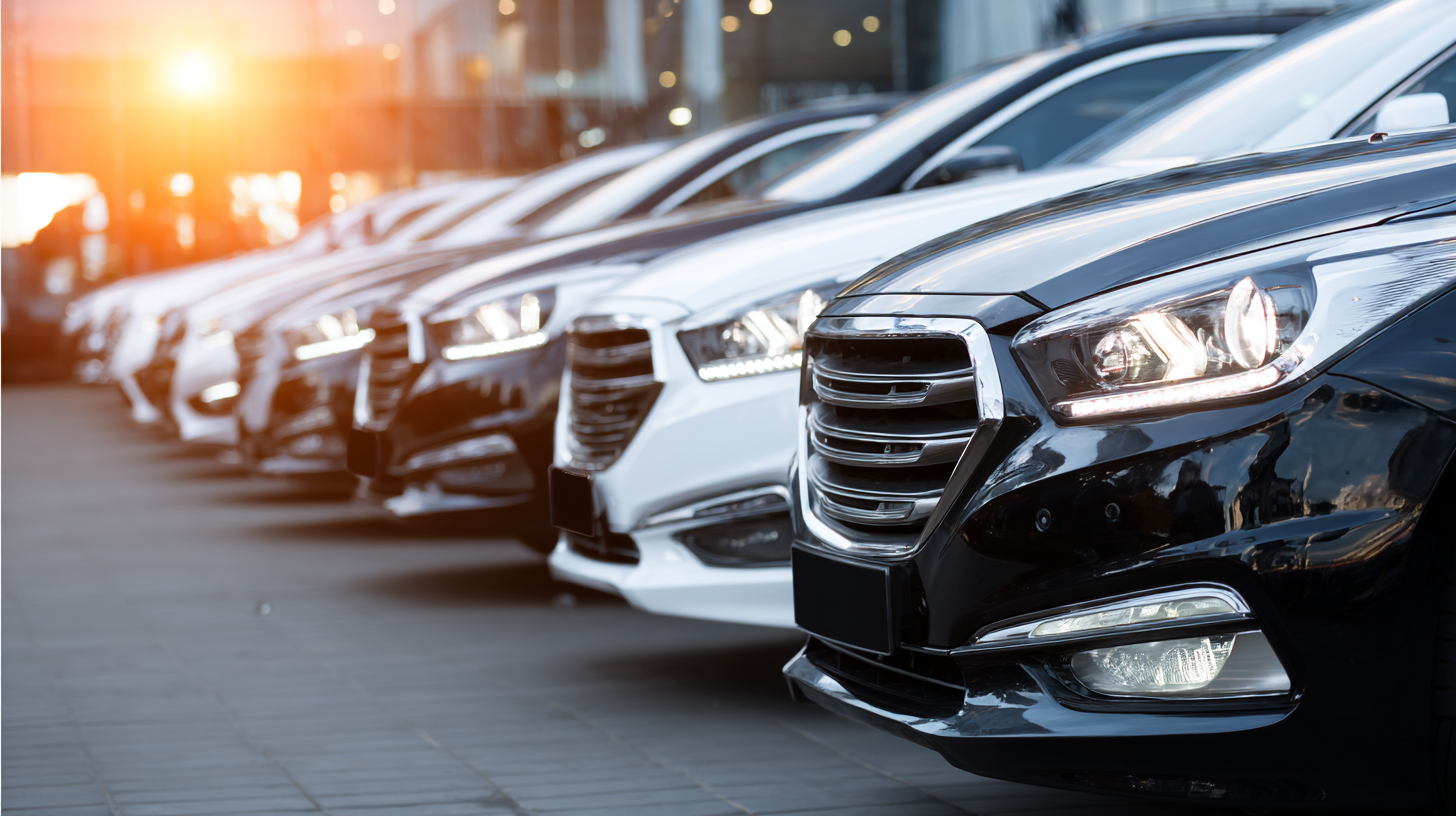Leave Your Message
In today’s digital age, Auto Dealers are increasingly recognizing the power of social media as a pivotal tool for enhancing sales and driving customer engagement. With millions of potential customers active across various platforms, social media offers a unique opportunity for dealers to connect with their audience, showcase their inventory, and build lasting relationships. By strategically utilizing platforms such as Facebook, Instagram, and Twitter, Auto Dealers can not only promote their vehicles but also create engaging content that resonates with their target market. This approach allows for real-time communication and feedback, fostering a sense of community and trust among customers. As the automotive industry evolves, incorporating social media into marketing strategies is no longer just an option but a necessity for Auto Dealers aiming to thrive in a competitive landscape.

Social media has revolutionized the landscape of auto sales, providing dealers with an unparalleled platform to engage with customers and enhance their buying experience. By understanding the intricacies of various social media platforms, auto dealers can tailor their strategies to meet the needs and preferences of their target audiences. Platforms like Facebook, Instagram, and Twitter not only help in promoting inventory but also in building a community around the dealership brand.
Tips for effective social media engagement include sharing high-quality visuals of vehicles, utilizing stories and live sessions for virtual tours, and sparking discussions through polls or questions. Engaging content can drive interaction, allowing potential buyers to imagine themselves in their future vehicle. Additionally, responding promptly to customer inquiries on social media can foster trust and demonstrate a commitment to customer service.
Another effective strategy is leveraging user-generated content. Encourage satisfied customers to share their purchase experiences online, tagging the dealership in their posts. This creates authentic testimonials that can influence prospective buyers. By integrating these tactics into their sales strategies, auto dealers can significantly boost both customer engagement and sales through social media.
This chart illustrates the correlation between social media engagement and auto sales growth over a six-month period. The data represents the number of interactions (likes, shares, comments) on social media platforms and the percentage increase in auto sales.
In today's digital landscape, auto dealers must recognize the importance of identifying target audiences on social media platforms to effectively engage potential customers. According to a report by the Automotive Industry Association, nearly 70% of car buyers begin their research online, and social media is crucial in influencing their decisions. By understanding demographic data, such as age, location, and interests, dealers can tailor their content to resonate with specific segments, thereby enhancing user engagement and boosting sales.
To effectively reach prospects, auto dealers should consider leveraging targeted advertising on platforms like Facebook and Instagram, where over 80% of users follow at least one business. These platforms offer powerful tools for audience segmentation, allowing dealers to create bespoke campaigns that speak directly to their ideal customers. A study from the Digital Marketing Institute found that personalized marketing can increase sales conversion rates by up to 20%. By crafting targeted messages that address the unique needs and preferences of their audience, auto dealers can foster deeper connections and drive higher sales through social media engagement.
Social media has become an essential platform for auto dealers looking to enhance their customer engagement and increase sales. Creating compelling content that showcases auto deals and promotions can significantly drive customer interactions. According to recent data, 70% of consumers are more likely to make a purchase when they engage with brands on social media. This highlights the importance of utilizing platforms like Instagram, where visual content reigns supreme. A report noted that businesses leveraging Instagram reported a 62% increase in engagement, demonstrating its effectiveness for automotive marketing.

Moreover, engaging content not only promotes current deals but also fosters a community of loyal customers. Implementing effective social media automation tools can streamline content management, enabling dealers to maintain a consistent online presence. Research indicates that 90% of marketers find social media automation to save time, allowing them to focus on creating high-quality content. As personalization becomes increasingly vital, auto dealers should consider using generative AI to tailor their approach, ensuring that promotions resonate with their audience and drive meaningful interactions.
In today's digital landscape, auto dealers must prioritize customer feedback and reviews to foster trust and loyalty among their clientele. By actively engaging with customers on social media platforms, dealerships can encourage satisfied clients to share their experiences. Positive reviews not only enhance a dealer’s online reputation but also serve as powerful testimonials for potential buyers. When prospective customers see real experiences from others, it builds confidence in their purchasing decisions.
Moreover, responding to customer feedback—both positive and negative—demonstrates that a dealership values its clients' opinions. Addressing concerns and thanking customers for their praise can create a sense of community and belonging. This interaction helps humanize the dealership brand, making it more relatable and trustworthy. By leveraging customer feedback effectively, auto dealers can create a loyal customer base that not only returns for future purchases but also spreads word-of-mouth recommendations, further amplifying the dealership's presence in a competitive market.

In the rapidly changing automotive retail landscape, social media has emerged as a critical tool for dealers to not only engage customers but also track the impact of their marketing strategies. To effectively measure success in social media campaigns, dealers should focus on key analytics and metrics that provide insights into customer behavior and campaign performance. According to a report by Statista, nearly 80% of car buyers use social media during their vehicle purchasing journey, making it imperative for auto dealers to monitor engagement metrics such as likes, shares, and comments to gauge consumer interest and adjust their strategies accordingly.
Additionally, conversion tracking is vital for understanding the return on investment from social media efforts. Utilizing tools such as Google Analytics, dealers can measure how social media traffic contributes to site visits, lead generation, and ultimately sales. A study by Hootsuite reveals that businesses with effective social media strategies experience a 30% increase in sales, highlighting the importance of setting up conversion goals to assess the direct impact of social media marketing. By leveraging these analytics, auto dealers can refine their campaigns, achieve greater customer engagement, and ultimately drive higher sales.






